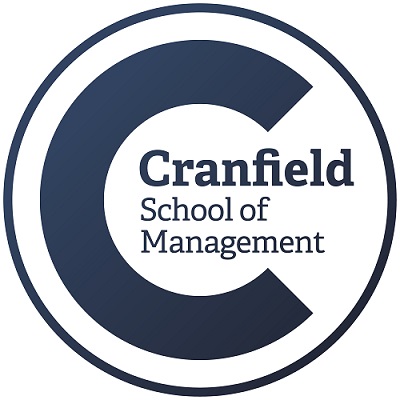- Strategy
Going Beyond Strategy: and Knowing How to Do It
Professor Patrick Reinmoeller keeps us abreast of the latest strategy thinking at a recent London thought-leadership event from Cranfield School of Management
In the second of Cranfield School of Management’s ‘@Brand Exchange’ events in the City earlier this month, Professor Patrick Reinmoeller provoked his audience to think beyond traditional ideas of ‘Strategy’, and reboot our approach to strategy towards developing ‘strategic leadership capabilities’.
In a lively and wide-ranging session we were encouraged to think beyond the idea of strategy as only ‘macro’, or ‘big picture’. Beyond the idea of strategy as a rigid roadmap to get us from point A to point B. Beyond some of the traditional ‘solutions’ which can come packaged under the guise of strategy. Beyond the buzzwords – and towards what Reinmoeller sees as the ultimate key to successful strategy: developing strategic capabilities.
“We don’t just need a plan,” says Reinmoeller, “We need the tools to deliver the plan. Strategy is going ‘micro’.”
New to 2019, this complimentary series of thought-leadership events from Cranfield seeks to “address leadership challenges from a variety of angles” – and is providing a vibrant forum in London to do just that. “At Cranfield we don’t lecture, we provide opportunities to discuss challenges,” notes Reinmoeller.
Early on in the session Reinmoeller asked the audience to list some of the challenges currently being faced by their organizations. Examples include ‘growth’, ‘political landscape’, ‘cyber-security’. Then we were asked to list some of our own ‘personal strategic leadership challenges’ (such as ‘career advancement’, ‘working with a rival’, ‘work/life balance’).
The exercise illustrates – as Reinmoeller explained – “This is why strategy is hard. So often these two sets of challenges get mixed up. We don’t really know what ‘best’ truly means. Is it ‘best’ for our department, ‘best’ for our shareholders, ‘best’ for our clients, for the local community, for society?”
We need to properly categorise or diagnose, and prioritise these challenges – before we even begin to make a plan that meets them.
“For many years strategy was seen as something very linear. A roadmap from A to B. You develop the perfect plan, and then you execute. But what if you developed a plan for a financial services company in 2008, and you were set to unveil it September 15th, 2008 – the day Lehman Brothers went bust? First contact with reality very often shreds your perfect plan.”
“Strategy thinking has thrown this A to B concept out. Unless you are operating in a very stable industry. Does that apply to you? I thought not!”
“Now in strategy we use models that are more circular, more iterative. We analyse a lot still, but we also place a strong emphasis on creativity to generate options. If we only have one idea, we risk getting stuck. We analyse, we generate options, we implement – and then we analyse again, and so on.”
So how does Reinmoeller define the ‘strategic leadership capabilities’ he indicates as playing such a vital role?
“In strategy we have a lot of tools, and technologies, and cultural terms – or buzzwords. And mapping these out is helpful to see what is out there that might help us, but as strategic leaders we need to see how to do it. What is the right technology to use at the right time, and how? Strategic Leadership Capabilities are contextual capabilities, analytical capabilities, pragmatic capabilities – that help us see how to do it.”
For Reinmoeller, initiatives play an equally important role in successful strategy. “There is a strong correlation between companies who run projects and initiatives continuously, with innovation and success. These initiatives help firms change, and innovate, and provide superior performance over time.”
“A Project Manager at a large bank tells me they are running 600 projects at any given time, around the world.”
And there are patterns to these initiatives too. The whole organization is often involved in any one project. Often a project will involve both ‘old knowledge’ and ‘new knowledge’ being combined, as well as ‘internal knowledge’ and ‘external knowledge’.
Having worked through some of the latest research ideas in the area, Reinmoeller left us with some disarmingly simple and revealing foundational truths about strategy: “Good strategy gives you a better life, because it allows you to focus on the things that are important to you,” and, ultimately that, “Prioritising is what strategy is all about.”
ARTICLES YOU MIGHT LIKE
BOOK REVIEW
A provocative new book reveals the downside of strategic and organizational change and the benefits of stability
DEVELOPING LEADERS QUARTERLY MAGAZINE AND WEEKLY BRIEFING EMAILS


































